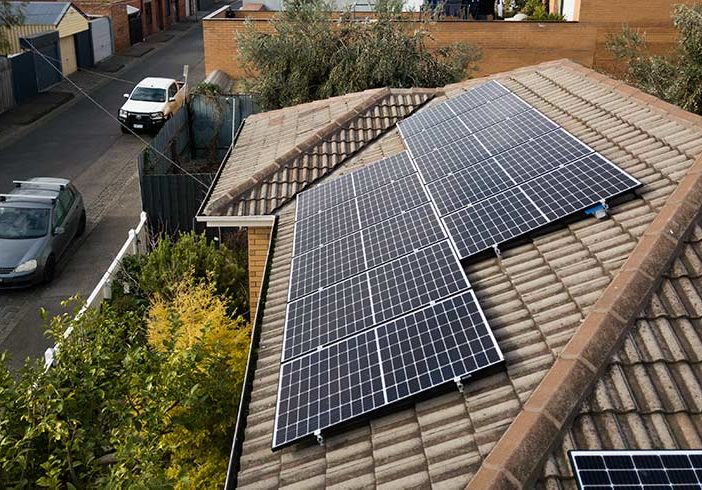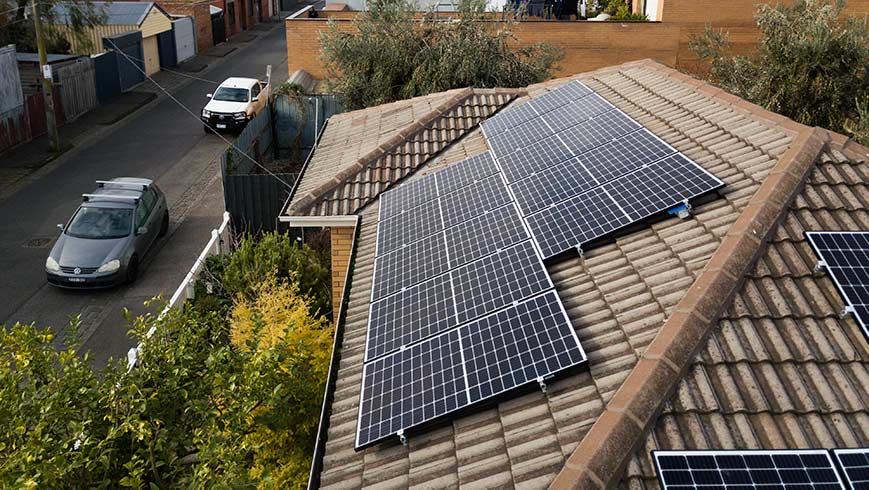
South Korean solar and home battery manufacturer QCells has announced it is closing its Australian branch, marking the exit of one of few remaining non-China owned PV brands in the country and offering a stark reminder of the challenges of survival in the current low-price market.
A spokesperson for Hanwha QCells, which has been selling its premium quality (and priced) solar panels in Australia for more than a decade, confirmed the unexpected news with One Step Off The Grid on Thursday, relaying a statement from the company’s head office, in South Korea.
“After a strategic business review and thorough consultation with staff, on Tuesday Hanwha QCells Australia proprietary limited, the sole distribution company of QCells products in Australia, informed employees that the company will be closing,” the statement says.
“This decision is based on the context of the Australian solar market facing record breaking price drops and extreme market competition over the last 12 months.”
The company says it will not wind up operations immediately, but rather run the business as usual “for the next few months” to fulfil its customer service and supply responsibilities.
The decision from South Korea appears to have been unexpected by the Australian team, which recently posted an upbeat message on LinkedIn celebrating 14 years of QCells in Australia and “an even brighter future in 2024!,” with “exciting plans ahead.”
The company launched new range of QCells rooftop solar panels at the end of 2022, and chose Australia for the international debut of its Q.Home Core residential battery system earlier that same year.
In 2022, QCells also became the latest non-traditional energy market company to make a move into Australia’s increasingly competitive electricity retail space, with the launch of an “end-to-end” solar and battery-based offer through a new entity called Arcstream.
And in July of last year, QCells moved to freeze the prices on all of its retail energy plans for Australian customers until at least October in response to soaring wholesale electricity prices.
What the company’s exit from Australia means to QCells customers over the long term remains to be seen, but the company has stressed it will communicate with customers and businesses “over the next few days” about maintaining services and fulfilment of orders.
“Consumers in Australia who have purchased to QCell solar panels and energy storage systems will be served ongoing by the manufacturer’s warranty under Australian Consumer Law,” the statement says.
And according to Solar Quotes, “Australian solar company Zeco will also continue to offer after-sales support and service, ensuring ongoing assistance for QCells customers in Australia.”
What does it mean for the Australian market? The decision suggests there is not enough room, or demand, for solar panels priced in the mid to upper range, despite industry claims that an increasing number of customers are going for quality over cost.
“Basically oversupply from China has meant that module prices have just plummeted,” Rystad Energy analyst David Dixon told One Step Off The Grid. “I’m assuming they just can’t compete.
“Consumers are still, essentially, cost sensitive as well. So while you can get a good quality Longi or Jinko module that’s cheaper, it’s going to be hard to convince the consumer to [opt for higher priced alternatives].
In the US, meanwhile, where the government has introduced sweeping tariffs on China made modules, QCells recently announced it has begun production at a new solar panel factory in Georgia that can turn out 5.1GW of PV a year.
The company was also recently ranked as #1 Solar Panel Brand on SolarReviews’ Top US Solar Panel Manufacturers list for the second year in a row.

Sophie is editor of One Step Off The Grid and editor of its sister site, Renew Economy. Sophie has been writing about clean energy for more than a decade.

